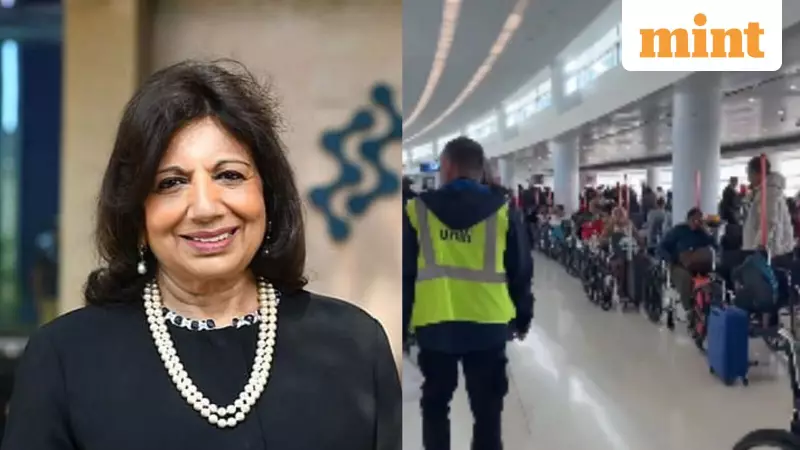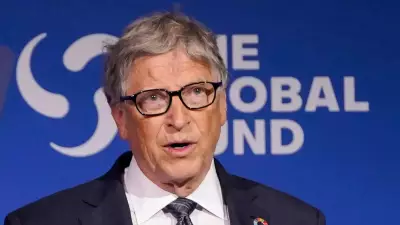
Biocon founder Kiran Mazumdar Shaw has entered the ongoing controversy surrounding the alleged misuse of wheelchair assistance facilities at airports, proposing a financial solution to address what many are calling systemic exploitation.
The Viral Video That Sparked the Debate
The discussion ignited when a video originally posted by a Chinese user on platform X went viral, showing a substantial queue of passengers appearing to be Indian nationals seated in wheelchairs at an airport departure lounge. Airport staff members were visible providing assistance to these travelers in the widely circulated footage.
The original post made serious allegations, claiming that Indian passengers, particularly those traveling on India-US routes, frequently request wheelchair assistance not out of genuine need but to access priority services. These privileges include early boarding and comprehensive end-to-end support throughout the airport journey.
The viral post stated in Chinese, as translated by Hindustan Times: "The departure lounge for US-India routes is filled with Indians in wheelchairs. Because disabled passengers enjoy priority boarding and full-service transportation, the proportion of disabled passengers on some routes is as high as 80%."
Air India's Startling Statistics
Adding credibility to the visual evidence, the viral clip gained further traction when another user shared it with additional context. This subsequent post claimed that according to popular airline Air India, approximately 30% of passengers on India-US flights opt for wheelchair assistance.
Kiran Mazumdar Shaw brought attention to these statistics in her social media response, highlighting the concerning implications. "Air India says 30% of passengers on India-US flights ask for wheelchairs. Most are able bodied travelers scamming the priority boarding system. Real disabled passengers get left short," she noted in her post.
Shaw's Controversial Solution
Rather than simply identifying the problem, the prominent business leader proposed a concrete solution to deter potential misuse of wheelchair services. Reposting the controversial video, Shaw suggested that airlines should implement a fee structure to distinguish between genuine needs and convenience-seeking behavior.
She specifically recommended: "They should charge an additional ₹5000 per airport n then they will see how many genuine passengers there are." This straightforward financial disincentive, according to Shaw, would naturally filter out those exploiting the system while ensuring services remain available for those with authentic requirements.
Mixed Reactions from Netizens
Shaw's proposal received divided responses from social media users, revealing the complexity of the issue beyond surface-level observations.
One commenter provided crucial context, explaining: "It is not about walking it is about the process. Most Indian parents don't know English and don't know where to go so their children book wheelchair so they can go to security clearance, terminal change and baggage collection area without tension. See all the people above are old."
Another user elaborated on the emotional and practical dimensions, noting: "It's the doting children in the US and India organizing this for their parents so they do not have to deal with transfers. The chair is meant for the disabled. Some are aged parents with real problems. But most are fit. But when do rules come in the way?! Disabled is just a word! And it's only $100. Maybe, the parents might say, 'this is shameful, I am only 55 and can walk.' But convenience, however shameful, cannot go unused is the general approach."
A third perspective addressed the fundamental challenge of implementation: "The only reason it is free right now is that you can't charge money for a wheelchair to genuinely disabled people and make air travel permanently more expensive especially for them. Solution needs to be on the lines of making a distinction on eligibility."
The ongoing debate highlights the tension between ensuring accessibility for genuinely disabled passengers and preventing system exploitation, with no simple solutions in sight as air travel continues to grow between India and the United States.





